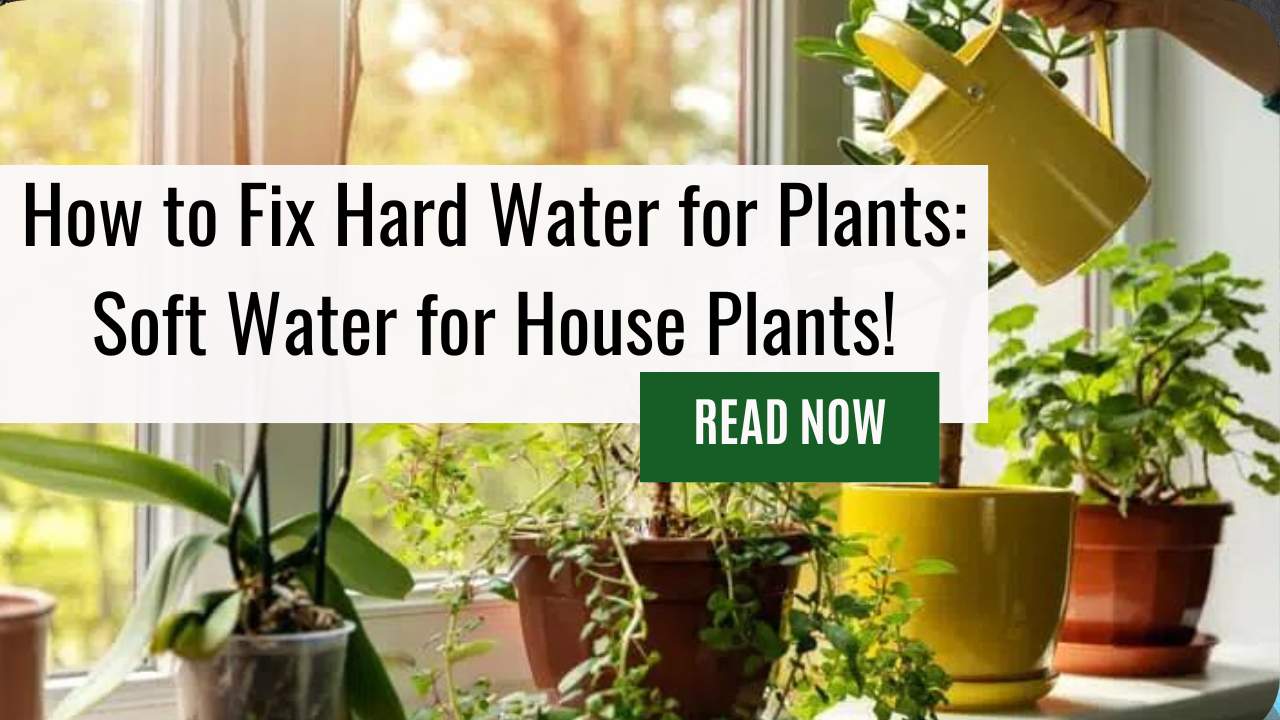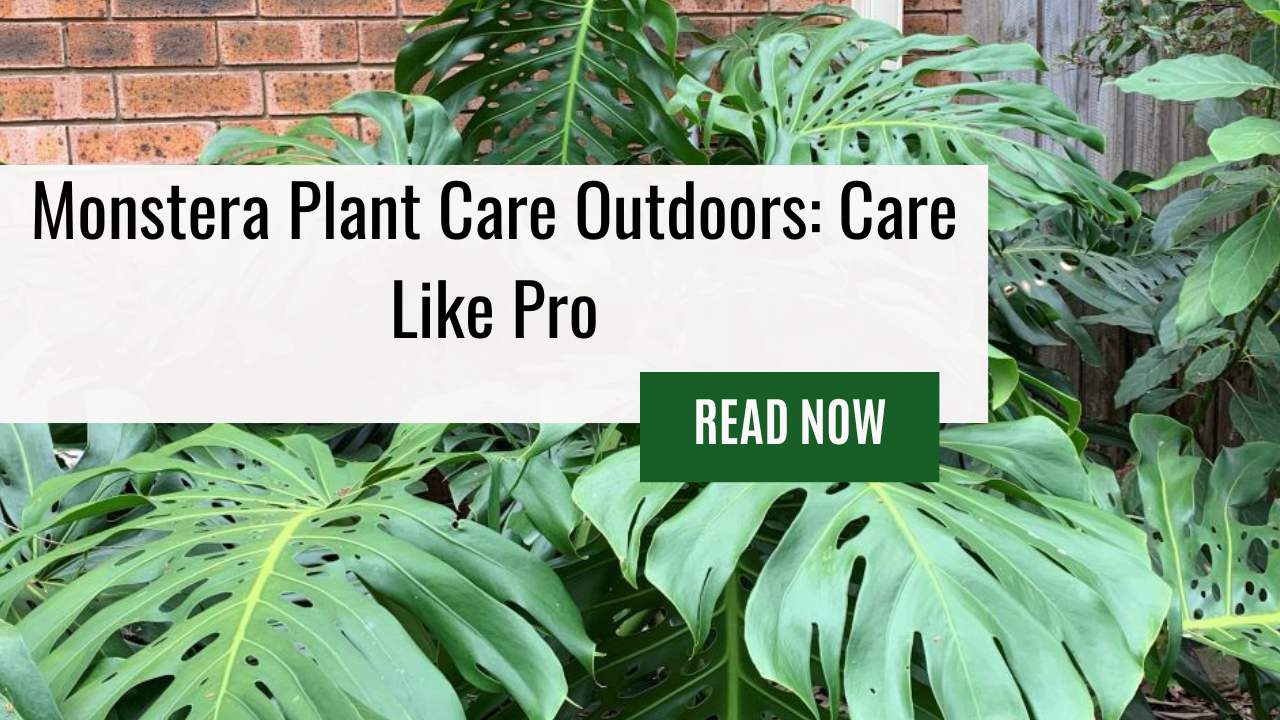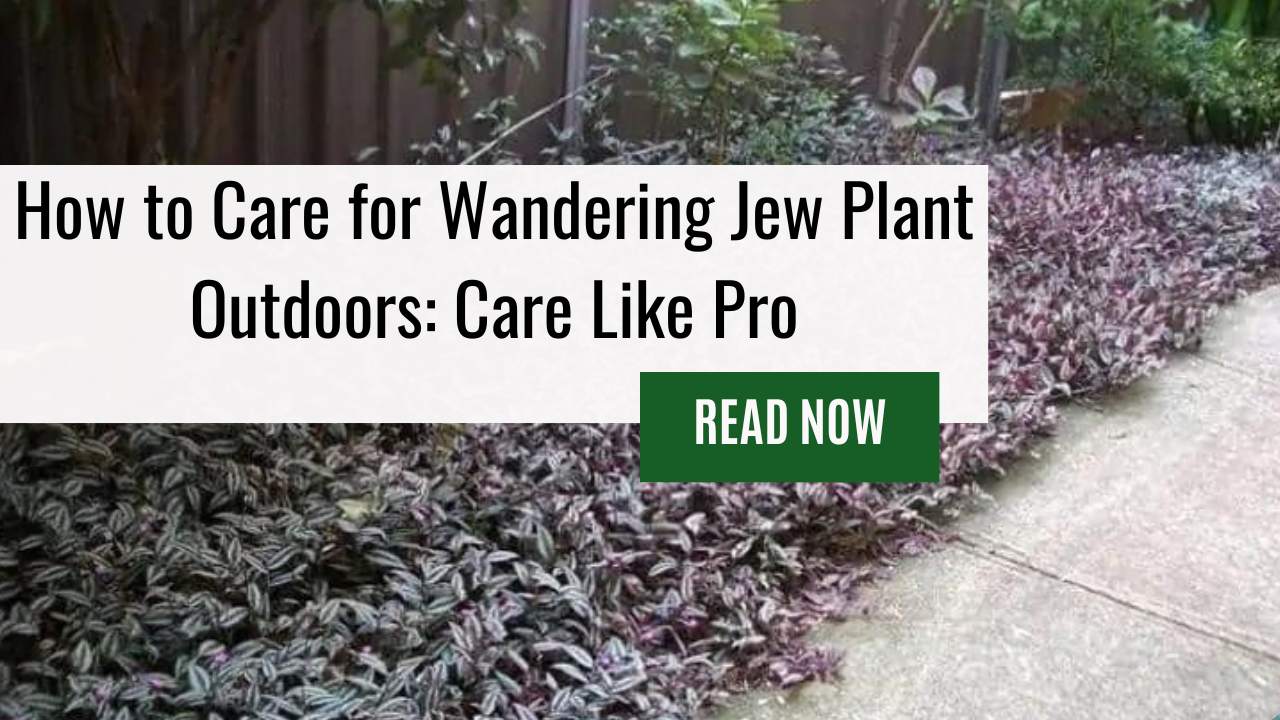Water is the elixir of life, essential to all living organisms. It nourishes our plants and keeps them healthy, vibrant, and alive.
But what happens when this vital resource becomes hard water? The answer is simple – it can spell disaster for your greenery.
Hard water contains high levels of dissolved minerals like calcium and magnesium that can create a buildup in soil over time.
This build-up leads to poor drainage, stunted growth, yellowing leaves, and even plant death.
For avid gardeners and plant enthusiasts alike, these consequences may be devastating. Fear not!
In this article, we will explore how to fix hard water for plants using easy-to-follow steps that will help you achieve mastery in caring for your beloved greens.
Understanding Hard Water And Its Effects On Plants
If you’re a plant enthusiast, then you know how crucial it is to provide your plants with the right nutrients they need to thrive.
While water is essential for plants, hard water can have negative effects on their growth and health.
Hard water contains excessive amounts of minerals such as calcium and magnesium that can accumulate in the soil over time.
When watering plants with hard water, these minerals can build up in the soil causing poor drainage, stunted growth or even death of the plant.
Besides this, hard water doesn’t allow proper absorption of fertilizers which makes it difficult for plants to receive necessary nutrients.
On the other hand, soft water has fewer mineral contents making it ideal for watering plants.
Identifying Hard Water In Your Area – Water Issues!
After understanding the harsh effects of hard water on plants, you may feel like giving up altogether. But don’t let that feeling get to you!
There are ways to fix this issue and ensure your plants thrive in a healthy environment.
The first step is identifying whether or not you have hard water in your area.
Testing your water for hardness will help determine if it’s the root cause of any water issues faced by your plants.
Once identified, there are several techniques to soften hard water for watering plants.
One method is using a filtration system to remove excess minerals from the water.
Another technique involves mixing soft water with hard water to dilute its mineral content before use.
With these simple solutions, you’ll be able to provide better quality water for plants without having to worry about any harmful side effects caused by hard water.
Testing Your Water For Hardness – Checking Water Samples!
Before you can fix the hard water issue in your garden, it’s essential to determine its hardness level.
Knowing this information will help you decide on the right method of softening your water and protecting your plants from harm caused by excessive mineral deposits.
Luckily, testing your water for hardness is easy and inexpensive.
You can purchase a test kit at any hardware store or online that measures the hardness of your water in grains per gallon (GPG) or parts per million (PPM).
Alternatively, some municipalities provide free water quality reports that include data on water hardness.
Once you have determined the hardness level of your tap water, you’ll be better equipped to choose between full-blown filtration systems or more straightforward methods such as watering with rainwater instead.
Rainwater As An Alternative – Using Soft Water For House Plants
Have you ever noticed how plants seem to thrive after a good rain?
That’s because the water from the sky is soft water, which means it doesn’t contain high levels of calcium and magnesium that can cause hard water damage to plants.
Luckily, if you live in an area with frequent rainfall or have access to a rain barrel, using rainwater as an alternative to hard tap water can be a game-changer for your plants.
Rainwater is naturally soft and free of any harmful chemicals or minerals found in hard water.
Collecting rainwater in a barrel or container allows you to bypass the use of harsh tap water altogether.
Not only does this benefit your plants by providing them with clean and nourishing water, but it also helps reduce your overall environmental impact by conserving natural resources.
So next time it rains, consider using some of that fresh precipitation to give your plants the TLC they deserve!
While collecting rainwater may not always be feasible depending on where you live, another option for obtaining soft water for plant use is distilling your tap water at home.
Distilling Your Water To Soften Hard Water For Plants
If you’re struggling with the effects of hard water on plants, one solution is to distil your water.
Distilled water has been purified through a process that removes most of its mineral content, making it an ideal choice for watering plants.
To soften hard water for plants, all you need is a simple distillation setup: a pot, a lid, and some ice.
First, fill the pot with tap water and place it on the stove. Bring the water to a boil before covering it with a tight-fitting lid.
Then reduce the heat and let the steam condense back into liquid form by placing ice cubes on top of the lid.
The resulting distilled water can now be used to nourish your plants without any harmful minerals or chemicals.
As we move forward in this guide, we’ll explore another method of reducing hardness in your tap water – boiling!
Boiling Your Tap Water To Reduce Hardness
If you want to soften hard water for plants, boiling your water is a time-tested method that has been used by many gardeners.
Boiling can help reduce the hardness of the water and make it more suitable for plant growth.
It’s like giving your plants a warm hug! Okay, maybe not quite that dramatic, but it does work wonders.
When you boil hard water, some of the minerals responsible for its hardness such as calcium and magnesium are left behind in the form of sediment.
This process helps remove these minerals from the water that would otherwise cause harm to your plants.
Once boiled and cooled down, this softened water will allow your plants to absorb nutrients more efficiently without the hindrance of excessive mineral content.
So why not give this simple solution a try?
Adding Gypsum To Your Soil
If you’re struggling with hard water for plants, adding gypsum to your soil can help alleviate the issue.
Gypsum is a natural mineral that contains calcium and sulfur, both of which are essential nutrients for plant growth.
It also has the added benefit of softening hard water for plants by reducing the amount of magnesium and calcium in the soil.
To add gypsum to your soil, simply spread it evenly over the top layer before planting or mix it into the soil using a garden fork or tiller.
The recommended application rate is typically 1-2 pounds per every 100 square feet of gardening space.
Be sure to follow package instructions as well as any specific recommendations from your local nursery or extension office.
With regular use, gypsum can improve soil structure and drainage while providing necessary nutrients for healthy plant growth.
Now that we’ve covered how to soften hard water for plants with gypsum, let’s move on to another method: using vinegar to lower pH levels in your soil.
Using Vinegar To Lower pH Levels – An Effective Part of How to Fix Hard Water for Plants!
If you’re looking for a quick and easy way to soften hard water for plants, using vinegar can be an effective solution.
Hard water contains high levels of minerals that can cause damage to your plants over time.
By lowering the pH level of your water with vinegar, you can create a more suitable environment for your plants to thrive.
To start, mix one tablespoon of white vinegar per gallon of water in a watering can or spray bottle.
Test the pH level of the mixture with a testing kit before applying it to your plants.
If the pH level is still too high, add more vinegar until you reach the desired acidity level.
Using this acidic fertilizer once every two weeks will help lower the pH level and keep your plants healthy.
As much as we want our plants to survive in any kind of condition, some simply cannot handle hard water.
That’s why choosing plants that thrive in hard water is essential if you want low-maintenance greenery in your home or garden.
Let’s take a look at some options that are perfect for those tough mineral conditions!
Choosing Plants That Thrive In Hard Water – Using Water Softener to Soften Water Hardness!
Now that we know how to lower pH levels using vinegar, let’s focus on another common issue for plants: hard water.
Hard water contains high levels of minerals, such as calcium and magnesium, which can cause damage to indoor plants over time.
If you notice your plant leaves turning yellow or brown, it may be a sign that the water is too hard.
To soften hard water for plants, there are several options available. One solution is to use a water softener system in your home to treat all incoming water.
Another option is to collect rainwater or distilled water for watering plants instead of tap water.
You can also add certain chemicals or products specifically designed to remove mineral content from the water before watering plants.
It’s important to note that not all plants require soft water – some thrive better with hard water!
Do research on the specific needs of your indoor plants before making any changes to their watering routine.
Maintaining Proper Soil Drainage
Have you noticed that your house plants are not growing as well as they used to?
It might be due to the hard water you’ve been using to water them.
Hard water, which contains high levels of minerals like calcium and magnesium, can affect the soil and make it difficult for plants to absorb nutrients properly.
But don’t worry, there’s a solution! You can soften hard water for plants by using various methods such as boiling or adding vinegar.
However, maintaining proper soil drainage is equally important in ensuring healthy plant growth.
When soil becomes compacted or too saturated with water, it can prevent air from reaching the roots and cause them to rot.
To avoid this issue, make sure you have good drainage in your pots or planting beds.
Use a mixture of perlite or sand with your potting soil to allow excess water to drain out easily.
With these tips in mind, your plants will thrive even when being watered with hard water.
In the next section, we’ll discuss adjusting fertilizer use for hard water conditions so that your plants receive all the necessary nutrients they need to grow strong and healthy.
Adjusting Fertilizer Use For Hard Water Conditions
When dealing with hard water for plants, it’s important to consider the hardness of the water and how it can affect your fertilizer use.
Hard water contains high levels of minerals such as calcium that can negatively impact plant growth by reducing nutrient availability.
To combat this issue, you may need to adjust your fertilization practices.
One solution is to increase the amount of fertilizer you use or switch to a different type that is more soluble in hard water.
However, be cautious not to over-fertilize as this can lead to other problems like root burn or toxicity.
Another option is to soften hard water for plants using a commercial product or DIY method like adding vinegar or lemon juice.
By making these adjustments, you can help ensure that your plants receive the nutrients they need despite the challenges posed by hard water conditions.
Now that you’ve adjusted your fertilization practices for hard water conditions, it’s time to monitor your plants for signs of improvement.
Keep an eye out for changes in leaf colour, size, and overall health.
If you notice improvements, continue with your adjusted fertilization routine and softening methods as needed.
However, if there are no visible changes or worsening symptoms, it may be necessary to reassess the situation and make further adjustments accordingly.
Monitoring Your Plants For Signs Of Improvement
Now that we have discussed adjusting fertilizer use for hard water conditions, let’s focus on how to soften hard water for plants.
One solution is to collect rainwater and use it for watering your plants.
Rainwater has a much lower mineral content than tap water, making it an ideal choice for your garden.
Also, you can install a water softener system in your home to improve the quality of tap water.
It is important to monitor the effects of these solutions on your plants to ensure they are thriving.
Keep an eye out for signs of improvement such as increased growth and greener foliage.
You may also want to track any changes in pH levels or nutrient uptake by using soil testing kits.
Remember, every plant has unique needs and preferences witabouttering, so be sure to adjust accordingly based on their requirements.
With consistent monitoring and adjustments, you’ll be able to successfully combat the negative effects of hard water on plants and achieve a flourishing garden.
Frequently Asked Questions
Can Hard Water Cause Damage To Plant Roots?
Yes, hard water can cause damage to plant roots.
The high levels of minerals and salts in hard water can build up in the soil over time, leading to poor drainage and nutrient deficiencies that impede root growth.
This can ultimately result in stunted or wilted plants, yellowing leaves, and decreased fruit or flower production.
It’s important to test your water quality regularly and consider using a water softener or filtration system if necessary to protect your precious plants from harm.
Can I Use Bottled Water As An Alternative To Hard Water For My Plants?
The answer is yes, but it’s not always practical or cost-effective.
Bottled water lacks essential minerals that are beneficial to plant growth and development, so using it exclusively could harm your plants in the long run.
Instead, consider investing in a water softener or installing a reverse osmosis system to remove excess minerals from your tap water.
These solutions will ensure that your plants get the nutrients they need without sacrificing their health or breaking the bank.
How Often Should I Test My Water For Hardness?
Well, that depends on a few factors like the type of plants you have and where you live.
As a general rule, experts recommend testing your water every three months or anytime there’s a significant change in weather patterns.
Testing kits are widely available at garden centres and online stores, so it’s easy to get started.
By regularly monitoring your water hardness levels, you’ll be able to make informed decisions about how to adjust your watering routine and keep your plants thriving.
Can Adding Too Much Gypsum To My Soil Have Negative Effects On My Plants?
Adding too much gypsum to your soil can create a host of problems for your plants.
While it’s true that this mineral is often beneficial for improving soil structure and increasing water retention, excessive amounts can harm plant growth by reducing the availability of other important nutrients such as potassium and magnesium.
Adding too much gypsum may even lead to toxic levels of calcium in the soil, which can stunt root growth and cause leaf burn.
So while gypsum has its benefits, be sure to use it judiciously to avoid inadvertently harming your precious plants!
Summing Up
In conclusion, fixing hard water for plants may seem like an intimidating task, but with some simple steps and precautions, your plants can thrive.
Think of it as tending to a garden – you wouldn’t just throw seeds in the ground and hope for the best, right? You need to provide proper nourishment and care.
Just like how we need clean water to survive, our plants do too. Don’t let hard water be the reason why your plants are struggling.
By testing your water regularly and adding appropriate amendments such as gypsum or using bottled water, you can ensure that your plants have what they need to flourish.
Give them the love they deserve and watch them grow!




Leave a Reply